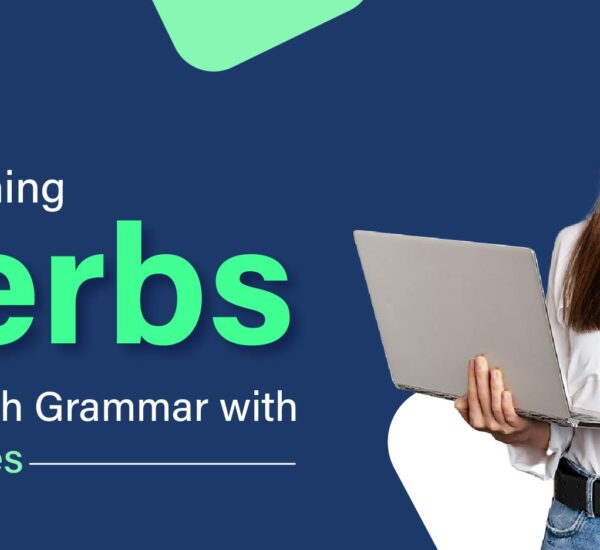Nouns are one of the most common types of words in grammar. A noun is a word that describes somewhere, someone, something, or an idea. We use a variety of nouns to describe the things around us in writing and speech. Take a moment to look around you; you’ll notice a variety of things.
If you go inside, you might notice windows, a computer, a trash can, a desk, walls, or a variety of other items. You might see a smartphone, trees, people, cars, or animals if you’re outside. The words we use to describe these things all have one thing in common: they are all common nouns.
What is a Common Noun?
It refers to a group of things rather than a single person. They, to put it another way, serve as generic terms for nonspecific objects. We all live on a planet in the solar system, for example. Planet refers to a type of object that can be found in space.
Because it refers to a specific planet, the noun Jupiter is not a noun. Another example is the word poet, which is a noun that broadly refers to a person who writes poems, whereas Shaskepeare is a proper noun that refers to a specific English poet and writer.
Also Read: How to Write a Professional Email? Complete Guide to Effective and Professional Email Writing
Common Noun Meaning and Definition
We can distinguish between the two main types of nouns – proper and common – by saying that a common noun is a general way of classifying something, whereas a proper noun is a particular way of evaluating something. The word dog, for example, is a common noun; however, if your dog’s name is Fido, the word Fido is a proper noun:
#Dog is a very common noun.
#Fido, the dog’s name, is a proper noun.
Here are some more examples of how common and proper nouns differ:
#The Washington Post is my favourite newspaper.
#Frank is the name of her husband.
#Babe Ruth is regarded as the greatest baseball player in history.
Common Noun Examples
#Alex is an excellent player.
#He is a member of the Sydney Sixers.
#He was not born in his nation.
#He resides in the city of Sydney.
#He is a man who lives in his dreams.
#He is a ferocious cricket player.
#His mentor is Michael Clarke.
#He owns a home on the other side of the river.
#Every day, he takes a walk along the river.
#He is accompanied by a friend.
#They discuss films and celebrities.
#Wolverine and Hugh Jackman are both his favourite films.
#Poppy is his dog’s name.
#He also owns a home and a car.
Examples of Proper Nouns
#Alex is an excellent player.
#He is a member of the Sydney Sixers.
#He was born in the United Kingdom.
#When he was young, he moved to Australia.
#He is based in Sydney.
#In the IPL, he is a member of the Kolkata Knight Riders.
#He is a BPL player for Dhaka.
#His mentor is Michael Clarke.
#He owns a home on the other side of the Georges River.
#Every Monday, he takes a walk along the river.
#Max, a friend of his, joins him.
#Max was born in the country of South Africa.
#Hugh Jackman and the film Wolverine are both favourites of his.
#Poppy is his dog’s name.
Also Read: How to be Fluent in English? Check Out the Best Cost-Effective Methods to Ace this Foreign Language
People and Animals
Keep in mind that they refer to generic items. The term “dog” is a noun, but “Bull Dog” is not. Here are some examples of nouns for humans and animals:
people: a woman, a child, aan author, brother, a wife, a friend, a firefighter, a captain, magician, a thief, a judge, a boss, a teacher, an accountant, a hero, a reader, an actress, and a queen.
Dogs, cats, lions, horses, monkeys, birds, bugs, fish, tigers, spiders, elephants, and alligators are examples of animals.
Places
We still refer to generic places with nouns. The term “country” is a noun, but “Sweden” is not. Here are some more nouns for places:
backyard, island, city, front, beach, uptown, jungle, nowhere, end, backyard, bedroom, kitchen, cave.
Things
Common nouns can be used to refer to a variety of things. We still only use them to refer to generic items rather than specific items with names. The word car, for example, is a noun, but the word Toyota is not. The following are a few examples of nouns that refer to objects.
Ideas
Emotions, ideas, philosophies, concepts, and other intangible things that we can’t detect with our five senses are all examples. We only use widespread nouns to refer to generic notions in this case. The word religion, for example, is a noun, but the word Judaism is not. Here are a few more nouns that refer to intangible objects:
government, death, chaos, happiness, friendship, life, science, sadness, anger, greed, bravery, depression, hunger, sleep, loneliness, hate, love, insomnia, logic, reason, justice, and crime.
Common Noun Usage
They are used to describe a group of a concept or an object. Consider the word star, as in the night sky’s stars. The term “star” is a noun that refers to a category of objects that we see in the night sky, such as the luminescent bodies that can be found all over the universe twinkling overhead. The Sun, on the other hand, is a proper noun that refers to the star at the centre of our solar system.
As a result, anything that is a thing can be categorised as nouns:
Also Read: Who Needs Presentation Skills training? Effective Ways to Improve Your Presentation Skills
Categories of Nouns
Lawyer, politician, doctor, nurse, teacher, and football player are examples of professions.
People: People in are named using nouns, though their authorised titles in given names or certain cases are proper nouns. When we refer to people using nouns, we use words like preacher, teacher, police officer, clerk, grandma, boyfriend, delivery driver, cousin, girlfriend, and barista.
When talking about your father, for example, father is a noun.
My father is a professional actor.
Barbara’s father was the city’s best cook.
Some More
When speaking to your father or referring to him by his given name, however, father is a proper noun.
“Can you bake your brownies for the party, Dad?”
I invited Father Steve to dinner with us.
Objects include a potato chip, a car, a newspaper, a home, a boat, a shoe, a table, and a sword.
Common nouns, on the other hand, can be more abstract concepts, such as emotions, ideas, and experiences, rather than things:
Abstract ideas: Culture, hatred, love, democracy, time, war, empathy, peace, anger, laughter.
Common Nouns are Lowercase
People frequently make the mistake of capitalising them unnecessarily. Some words, such as president, seem to be begging for a capital letter because we want to emphasise their importance instinctively. However, if it does not name someone or something specific, even this lofty title is a common noun (in this case, a specific president).
How to Recognise a Common Noun?
Given what we’ve covered so far, recognising it should be relatively simple. However, there are some instances where it can be challenging. Consider the following sentences:
#President Donald Trump was welcomed to Buckingham Palace by Queen Elizabeth II.
#During his time as President of the United States, Donald Trump paid numerous visits to queens and palaces.
#President Trump, Queen Elizabeth II, and Buckingham Palace are all proper nouns in the first sentence.
They are titles that belong to a specific person. Queens, palaces, and president are all common nouns in the second sentence. President refers to the job title rather than a specific person, and palaces and queens refer to queens and palaces in general.
Also Read: Interjection in English Grammar: Let’s Discuss Some Rules and Usage in Daily Life
Some More Examples
Attorney, comedian, actor, truck driver, officer, sergeant, secretary all fall under the category of common nouns, as we mentioned earlier. However, if these become specific titles referring to a specific person, as in the examples above, they can become proper nouns. When the words are placed directly in front of a person’s name, they are usually capitalised:
But consider how we can use the same words: Attorney General William Barr was appointed by President Trump.
While in office, each US president must appoint an attorney general.
As a result, the common noun can be identified by the fact that it is not capitalised. Common nouns, on the other hand, can be identified because they refer to non-specific things or classifications.
Conclusion
For the Verbal Ability section of various competitive exams, knowing the different types of nouns and their usage in English Grammar is crucial. Aspirants for various government exams should be familiar with English Grammar Noun usage and types because English is a separate part of the syllabus in all of these exams.
As a result, if you want to improve your skills in this area, you should go to the Fluent life website. There are numerous articles on the website that will assist you in improving your English skills. You can read the articles on the website and ask the experts questions by leaving a comment in the box provided right after the article.
By improving your skills, the fluent life online course can change your life. You can enrol in expert lectures and learn exponentially by downloading the app for both iOS and Android. So, go to the right place to make your life better.
Also Read: What is Communication? Why is it Important? Let’s Learn Communication Skills for Perfection!






